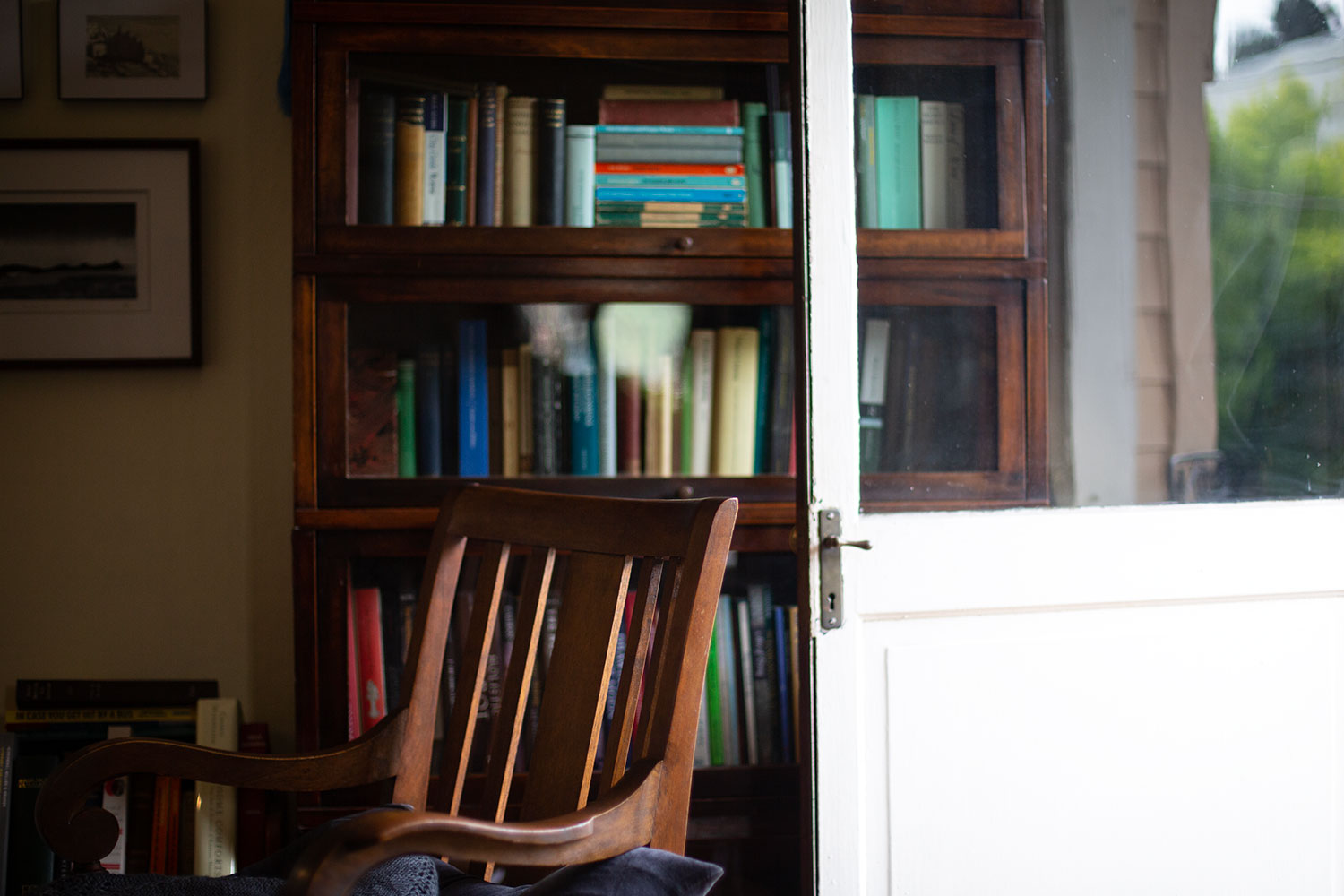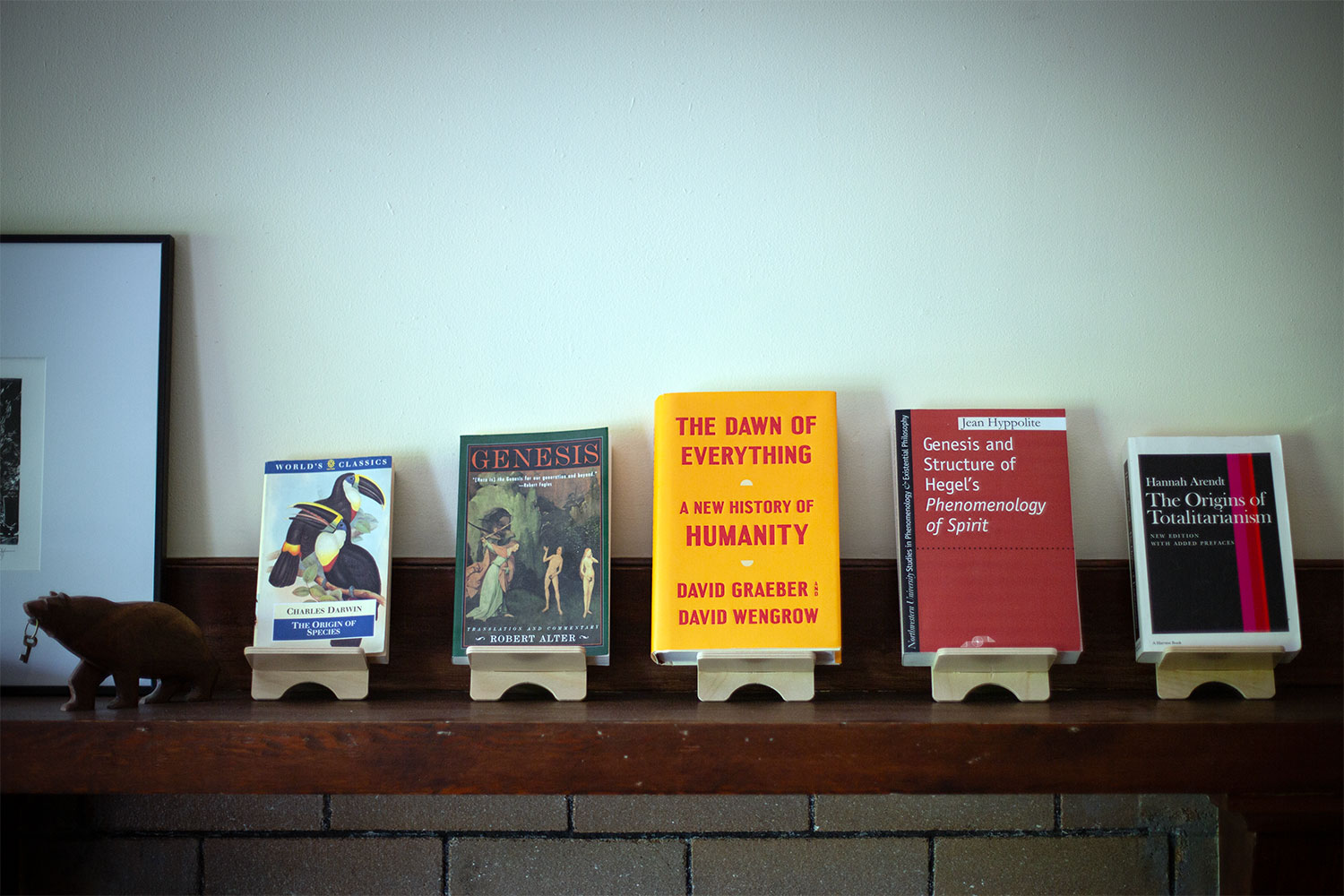June 2023
wandering
4 June 2023, around 18.40.

Employing his broad conception of self-consciousness and his distinction between physical and moral freedom, he argues that the data of self-consciousness cannot establish moral freedom. At best, self-consciousness can reveal physical freedom, such as, after work I could go to the library, go home, go to the coffee house, or decide to flee my miserable life and roam the great wide world. I could do any of these if I wanted, and unless I am physically hindered, I am free to do so, provided I want to do so.
towards the mean
8 June 2023, around 9.28.

διὸ καὶ ἀπορήσειεν ἄν τις, τί δή ποθ᾽ οἱ μὲν ἰατροὶ βουλεύονται περὶ ὧν ἔχουσι τὴν ἐπιστήμην, οἱ δὲ γραμματικοὶ οὔ; αἴτιον δ᾽ ὅτι διχῇ γινομένης τῆς ἁμαρτίας (ἢ γὰρ λογιζόμενοι ἁμαρτάνομεν ἢ κατὰ τὴν αἴσθησιν αὐτὸ δρῶντες) ἐν μὲν τῇ ἰατρικῇ ἀμφοτέρως ἐνδέχεται ἁμαρτεῖν, ἐν δὲ τῇ γραμματικῇ κατὰ τὴν αἴσθησιν καὶ πρᾶξιν περὶ ἧς ἂν σκοπῶσιν, εἰς ἄπειρον ἥξουσιν.
Hence one might also raise the question, why is it exactly that, whereas doctors deliberate about things in their field of science, grammarians do not? The reason is that since error occurs in two ways (for we err either in reasoning, or in perception when actually doing the thing), in medicine it is possible to err in both ways, but in grammar error only occurs in our perception and action, to investigate which would be an endless undertaking.
It is that pleasant period in the year when one can spend the days with windows open, enjoying the fresh air and a temperate clime. One walks the dog, scrubs the floor, admires the clouds, or fetches down a volume of Spinoza (bought on impulse) to check a reference. Work is light – leaning towards faintly hysterical papers about human resource management and the dangers of artificial intelligence – and one can safely cultivate an equally light asceticism, as there is nothing to strain one’s equanimity. It is a moment, but not momentous. There will doubtless be another reference to check tomorrow.
Citation (73)
21 June 2023, around 7.57.
And so? So, unbelievable as it is, to truly make the most of a summer evening, the idea of its fragility must be at the heart of it, the feeling that we are experiencing this for the last time. I made a fruit salad for dessert. Let’s have a cigarette. Let’s remember the present. Let’s live in the present. With the feeling that it’s nearly impossible.
thematic
23 June 2023, around 12.04.

Theme: Origins.
It was somewhere on Twitter, I think, that I saw a bookseller comment on household book displays, on the ways people live with and around books. It was around the time that I found out the library supply store does not require an institutional account (or institutional quantities) to purchase bookends and other accoutrements for maintaining an upstanding collection, and thus began the thematic displays on the mantel. A catalogue is not always sufficient to ensure one can remember the books one has on hand, but searching out a book (or five) on an arbitrary theme – well, it can offer a new perspective. Sometimes the themes are easy or obvious (‘Halloween’ or ‘writers from the former Yugoslavia’ or ‘modernist lady writers’), while other times they lead to unexpected narratives or images (‘dogs’ or ‘origins’, above). A broader theme allows greater latitude for interpretation – and thus a deeper scouring of the shelves and a greater sense of surprise, wonder, or amusement. The displays are arbitrary of course, and generally changed within a month or so – small skirmishes in the ongoing struggle between memory and attention.
Adversaria (3)
30 June 2023, around 4.22.
‘Their ideas were beautiful and academic, like pictures in a gallery, but somewhat remote’ —Carl Jung (Memories, Dreams, Reflections, trans. Richard & Clara Winston, p. 68)
Just as his mission in life, to solve the puzzle of existence, represented an act of love for human kind, his love for Adele was analogous. His love of human kind was abstract, universal, and not direct to the particular. Particular people, flesh and blood living people, human bipeds, or factory products, as he called them, were best loved at a distance. His love of Adele had that distance. He loved her abstractly, as a sister, and not personally, as an individual. He could not have her play a role in his everyday life, because then he would have had to recognize her as a person.
‘My own understanding is the sole treasure I possess, and the greatest. Though infinitely small and fragile in comparison with the powers of darkness, it is still a light, my own light.’ —Carl Jung (Memories, Dreams, Reflections, trans. Richard & Clara Winston, p. 88)
‘…the surest moment is also the most amazed, the least possessable. We’ll never know. Life is tender. And cruel’ —Philippe Delerm (Second Star, 100%, trans. Jody Gladding)
When Freud visited me in Zürich in 1908, I demonstrated the case of Babette to him. Afterward he said to me, “You know, Jung, what you have found out about this patient is certainly interesting. But how in the world were you able to bear spending hours and days with this phenomenally ugly female?” I must have given him a rather dashed look, for this idea had never occurred to me. In a way I regarded the woman as a pleasant old creature because she had such lovely delusions and said such interesting things. And after all, even in her insanity, the human being emerged from a cloud of grotesque nonsense.
